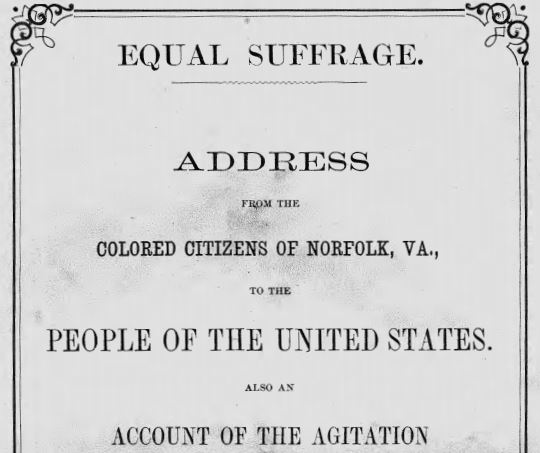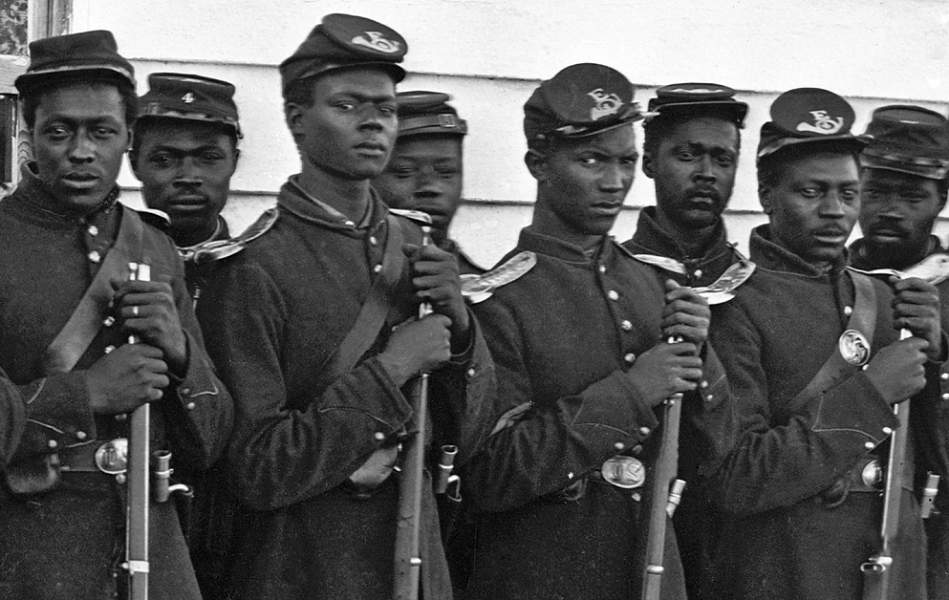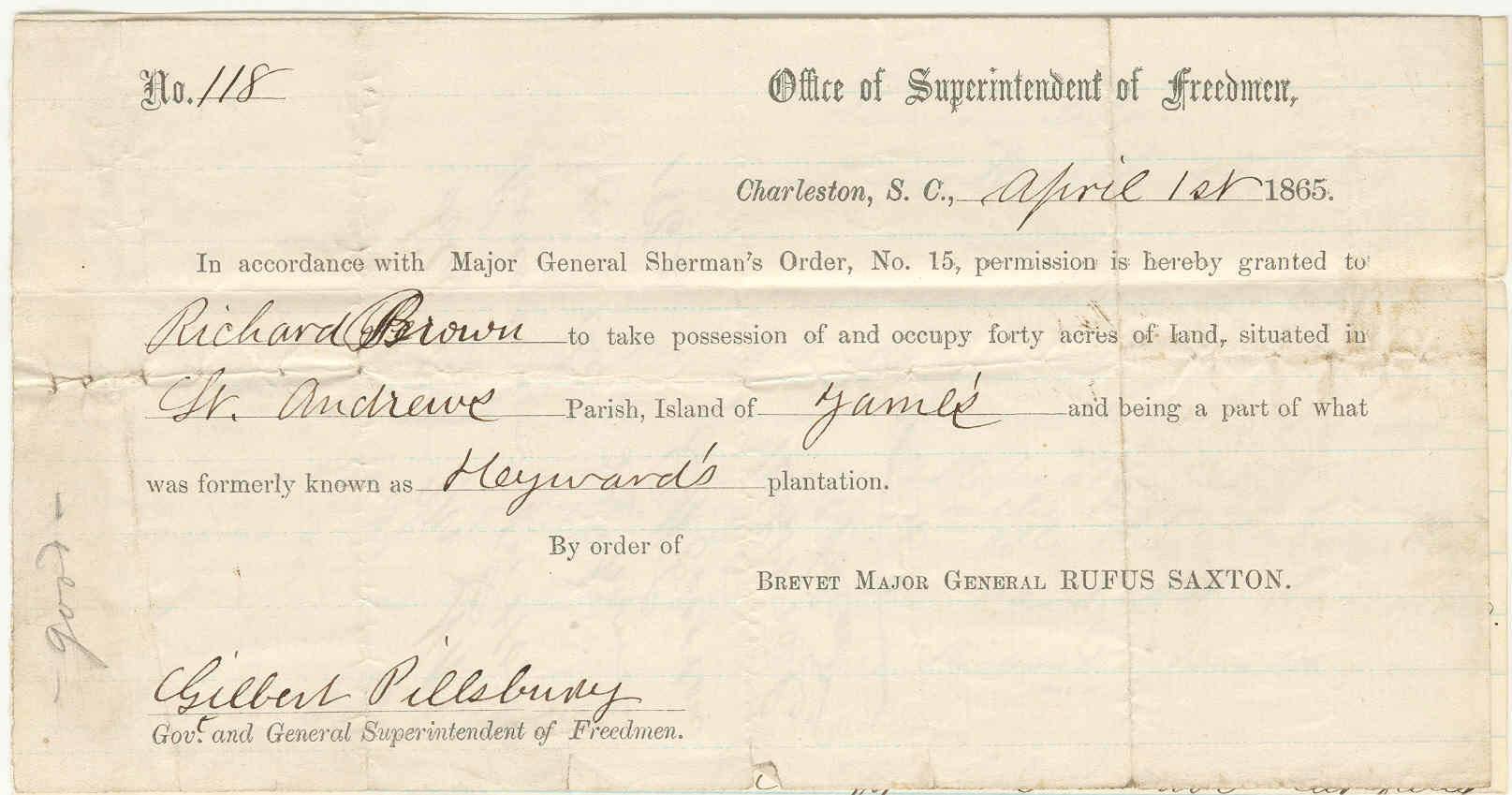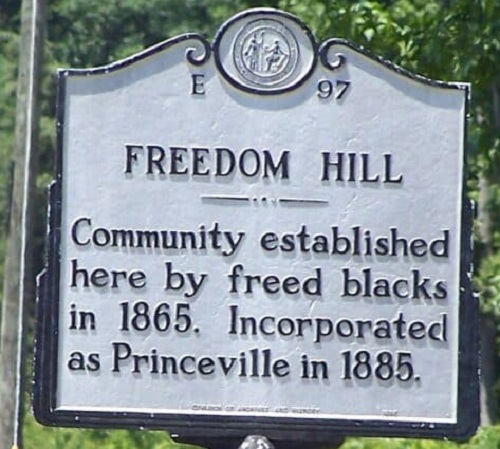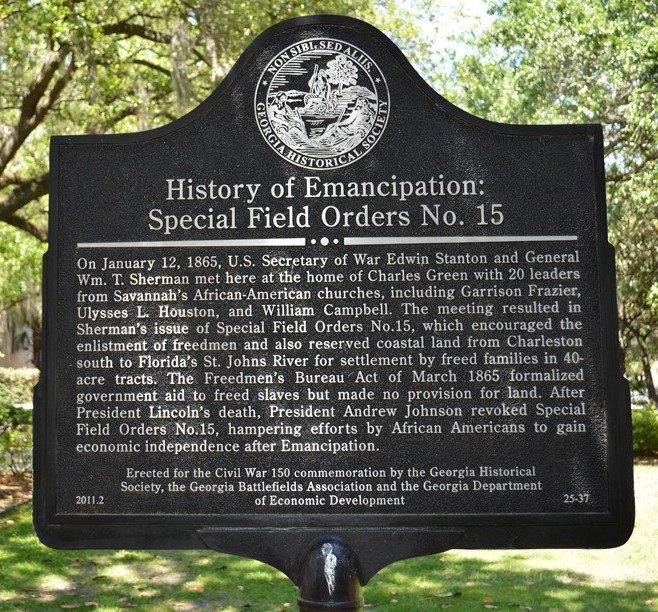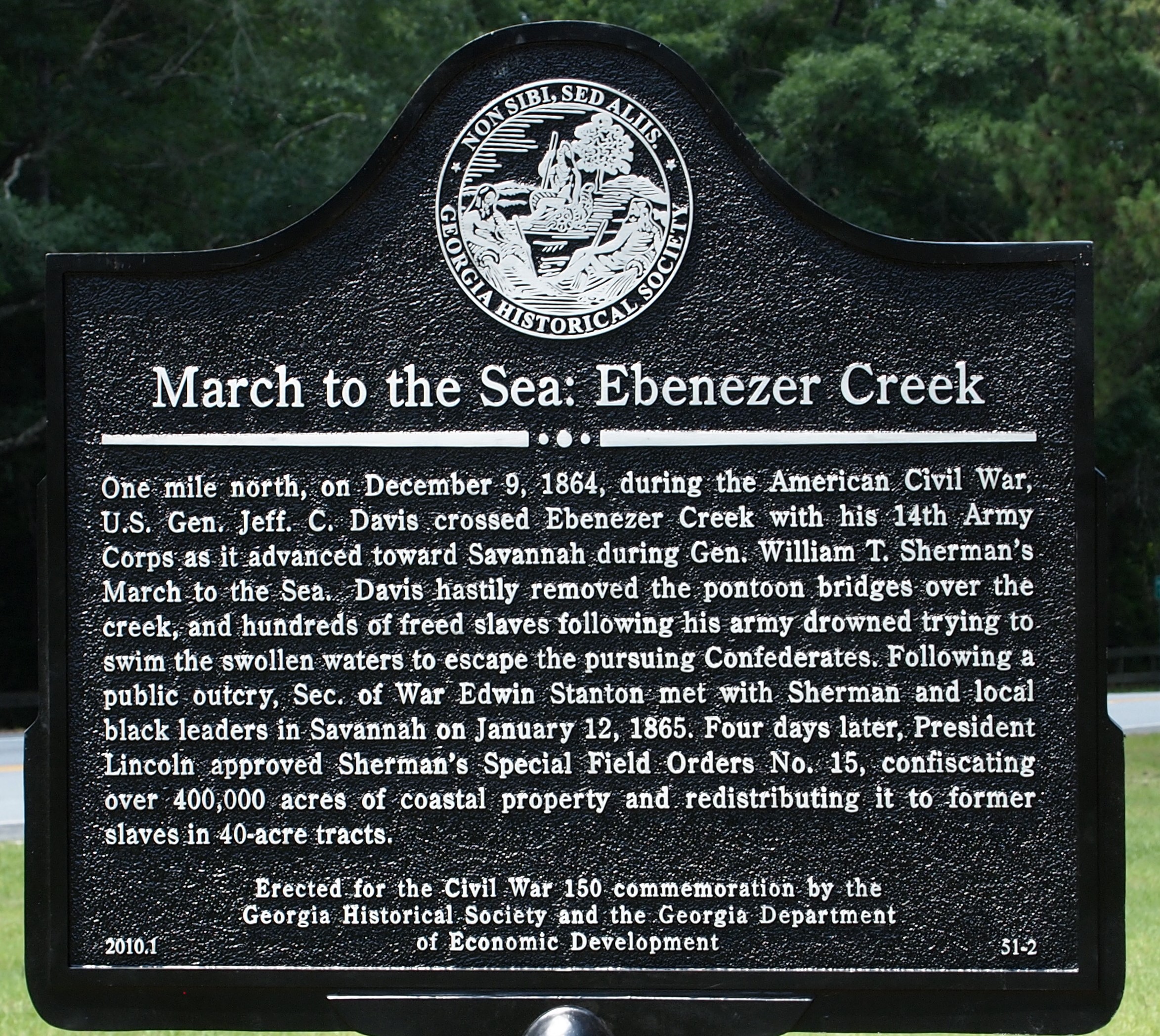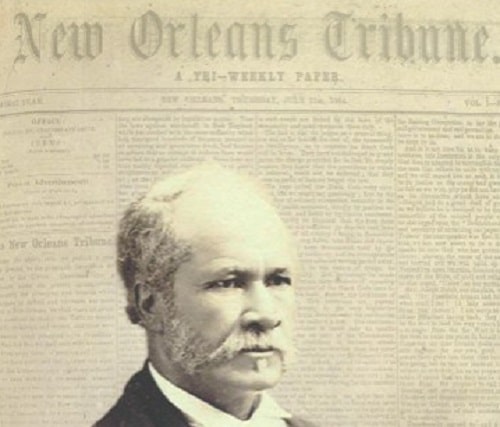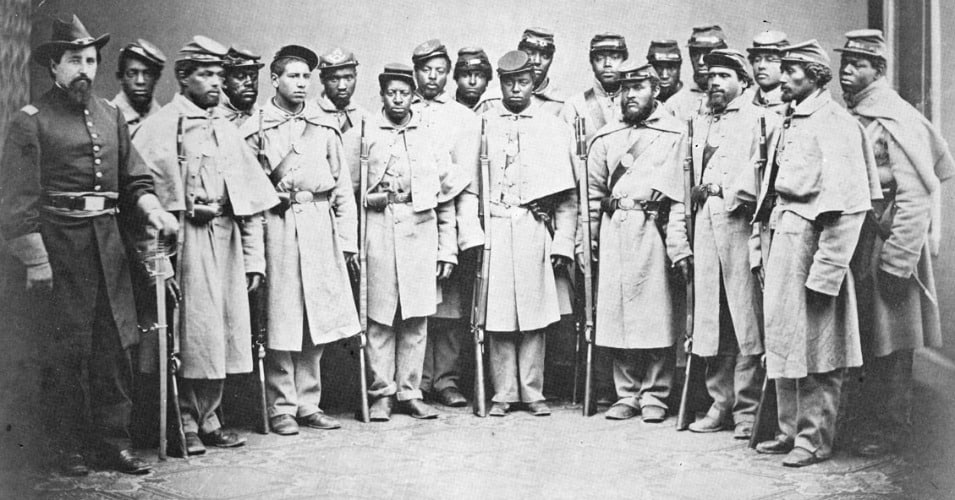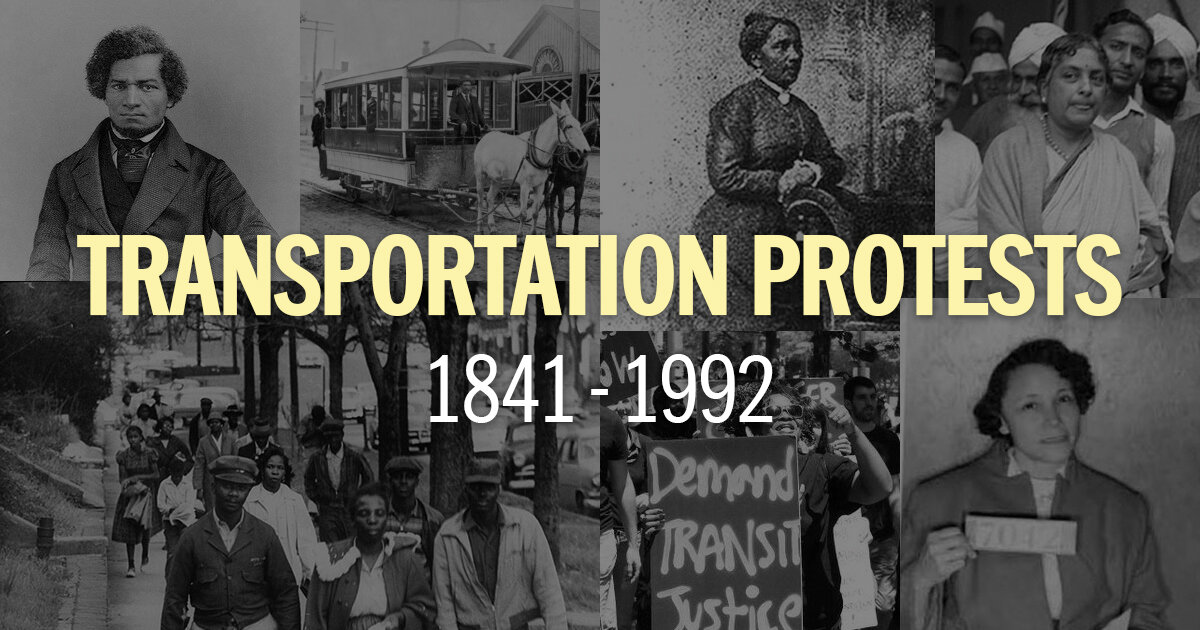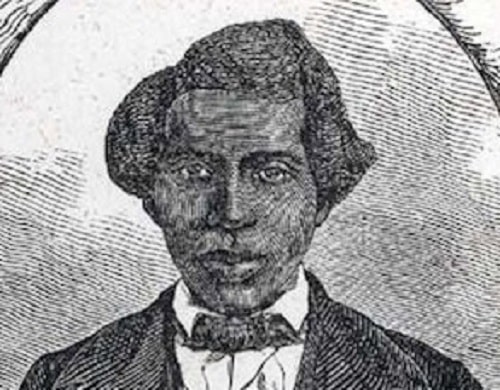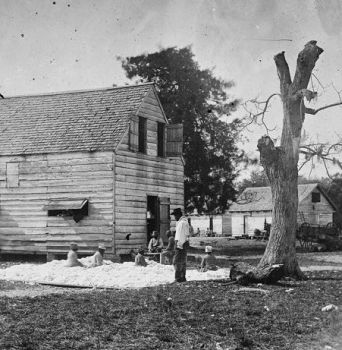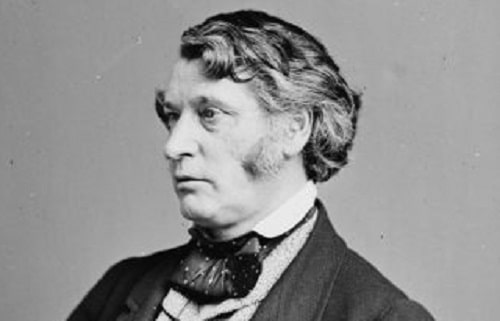The Colored Monitor Union Club organized and released their address for equal rights in Norkfolk, Virginia, soon after the Civil War ended.
Continue reading
African Americans tested their right to vote and when denied, cast their own “freedom ballots,” on election day in Norfolk, Virginia.
Continue reading
The U.S. Civil War ended when the Confederate Army of Northern Virginia surrendered to U.S. General Ulysses S. Grant at Appomattox Court House in south-central Virginia.
Continue reading
The Bureau of Refugees, Freedmen, and Abandoned Lands was established within the War Department to undertake the relief effort and social reconstruction after the Civil War.
Continue reading
Princeville, North Carolina originated as a resettlement community for freed people and became the oldest incorporated city chartered by African Americans in the United States.
Continue reading
Demands by Black ministers after the Ebenezer Creek Massacre led to the short-lived land distribution during Reconstruction known as Special Field Order No. 15.
Continue reading
People who had escaped from slavery and were following the Union Army, were blocked from crossing the Ebenezer Creek, leading to their death.
Continue reading
The New Orleans Tribune was launched and published daily in French and English by Louis Charles Roudanez.
Continue reading
Sgt. Walker was convicted of mutiny and killed, one of nineteen Union soldiers executed by the Union army for mutiny during the Civil War, fourteen of whom were Black.
Continue reading
Charlotte Brown was forcibly removed from a horse-drawn streetcar in San Francisco.
Continue reading
Tunis Campbell, who assisted in the Port Royal Experiment to assist freed people during Reconstruction, was an abolitionist, state senator, and justice of the peace.
Continue reading
The Union Army occupied the Sea Islands off the coast of South Carolina, freeing approximately 10,000 people who had been enslaved, starting what became known as the Port Royal Experiment.
Continue reading
Born on this day in Massachusetts, Charles Sumner was outspoken against slavery, for full recognition of Haiti, against the U.S.-Mexico War, for true reconstruction with land distribution, against school segregation, and much more.
Continue reading

